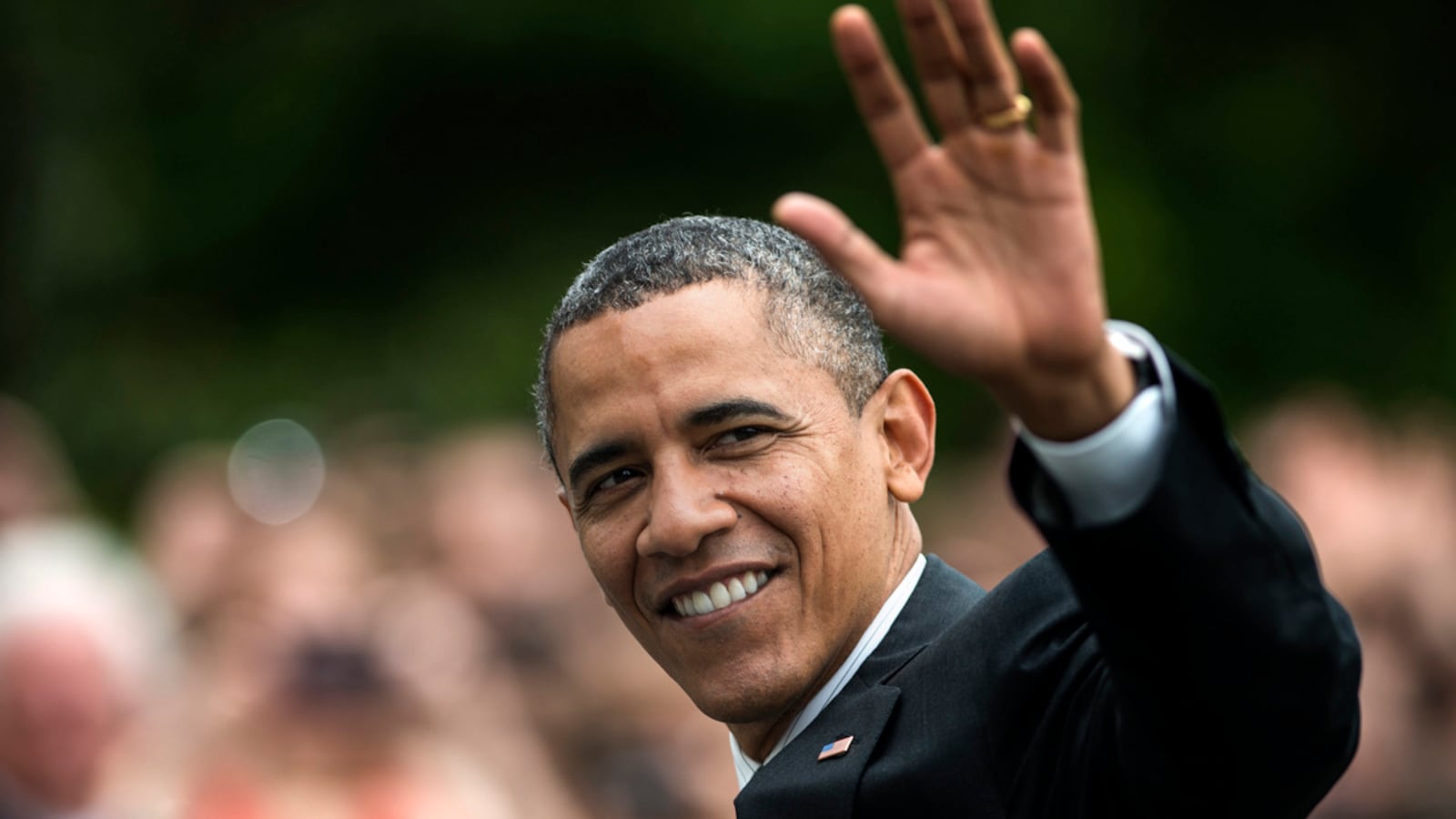It took about five minutes after President Obama made his historic announcement of support for gay marriage for the snark to begin. Some people pointed out that he’d simply reverted to the position he held in 1996, when, in response to a questionnaire from a gay newspaper in Chicago, he wrote, “I favor legalizing same-sex marriage, and would fight efforts to prohibit such marriages.” Others noted that he still believes the matter should be left to the states, suggesting acquiescence to North Carolina’s egregious Amendment 1 and other gay-marriage bans. The Log Cabin Republicans, straining to minimize the importance of the president’s statement, attacked him for only belatedly coming “in line with leaders like Vice President Dick Cheney on this issue.”
None of this should obscure the fact that when Obama told ABC News, “I think same-sex couples should be able to get married,” it was, to quote Joe Biden, “a big fucking deal.”
Our last Democratic president, Bill Clinton, signed the antigay Defense of Marriage Act (DOMA), saying then, “I have long opposed governmental recognition of same-gender marriages, and this legislation is consistent with that position.” Eight years ago, George W. Bush’s vehement opposition to gay marriage helped carry him to reelection against liberal John Kerry. If Obama’s pro-gay-rights supporters tolerated his nominal opposition to equal marriage rights, it was largely because, until very recently, many assumed that any candidate with a different position would be unelectable on a national scale. It’s hard to think of any other civil-rights issue where so much progress was made so fast.
To criticize Obama for following that progress rather than leading it is to misunderstand the nature of political change. No president forces major social advancements by himself. FDR understood that when he responded to entreaties from the labor leader A. Philip Randolph by agreeing and then saying, “Now go out and make me do it.” Lyndon Johnson didn’t pass the 1964 Civil Rights Act until the civil-rights movement changed public opinion and the shock of John F. Kennedy’s assassination altered political dynamics. Presidents have to balance strategic political concerns with moral ones. They can encourage and ratify progress, but they can’t create it.

The fact that Obama’s gay-marriage evolution was motivated as much by practical concerns as by idealism doesn’t make it any less remarkable. Rather, it’s a sign of how successful the gay rights movement has been in organizing and demonstrating the justice of its cause, turning what was once a wedge issue for the right into a potential wedge issue for the left. It’s also a sign of how much progress on gay rights had already been made during Obama’s presidency. Gay marriage wouldn’t have been thrown into such sharp focus if he hadn’t already ended "don’t ask, don’t tell" and refused to enforce DOMA. It made sense for Obama to end the charade of opposing gay marriage because nobody on either side believed his position was sincere. If the rest of his record hadn’t been so pro-gay, though, they might have.
While certainly politically calculated, Obama’s announcement is not without risk. After all, North Carolina, a state the president hopes to win in November, just voted overwhelmingly to strip gay unions of any recognition whatsoever. A majority of Democrats and a smaller majority of independents are on Obama’s side, but he has just energized social conservatives in a way that Mitt Romney alone never could. His move required a bit of audacity as well as practicality.
Still, it will probably help him much more than it hurts him, by thrilling many of his supporters, throwing Romney’s reaction into higher relief, and ending the painful linguistic contortions necessary to justify his previous untenable position. That should take nothing away from his statement’s importance. Real change happens when social movements convince leaders that doing the right thing needn’t conflict with doing the smart thing. Today, Obama did both.






